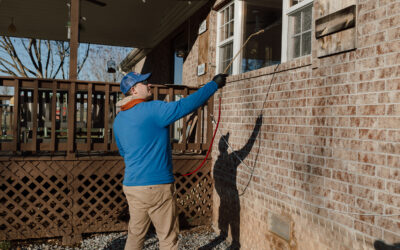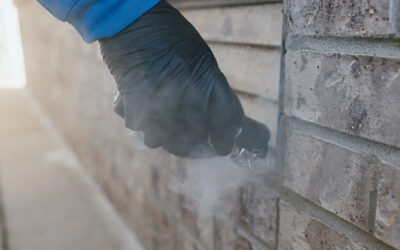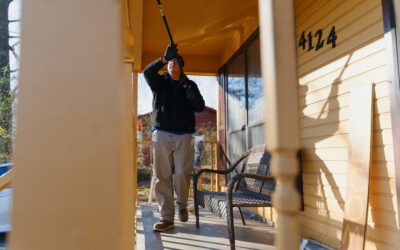
How To Avoid Pests During Summer
Summer is the perfect time for swimming, hiking, picnics, barbeques, and other outdoor fun. But summer bugs love the warm weather too and a bite or a sting can really put a damper on the good times. Some bugs hibernate during the winter and then return full force in warmer weather, while others are active all year long.
Common summertime pests include mosquitoes, ants, ticks, fleas, wasps, and bees. Luckily, we’ve got some tips and tricks for avoiding pests during the summer and protecting yourself from the risks these pests can pose.
Mosquito Control
Most mosquito bites are harmless – if annoying and itchy – but they can carry terrible diseases like Yellow Fever, Zika, and Malaria. Mosquitoes bites can also cause heartworms in dogs – a dangerous malady that usually results in death when left untreated. Make sure you’re protecting yourself, your family, and your pets from mosquitoes this summer.
If possible, avoid being outside during dusk and dawn – this time of day is still warm, but not scorching and mosquitoes are more active at this time.
Waer clothing that covers your arms and legs when possible. There are many summer-friendly, breathable fabrics that protect you from harmful UV rays as well as mosquito bites!
Clean up any stagnant or standing water on your property. These pools are breeding grounds for mosquitoes and proactive prevention can make an enormous difference. Remember – mosquitoes can lay hundreds of eggs in an area of water as small as a filled bottle cap!
Check your window screens and make sure they fit tightly. If any of your screens are torn, repair or replace them.
Always use insect repellant before going outside!
Ticks
Ticks are a threat year-round, but they’re much more active in warm weather. Ticks are parasites that suck the blood of their hosts by burying their heads into your flesh. Ticks carry multiple diseases that are dangerous to you and your pets including Lyme Disease and Rocky Mountain Spotted Fever. There are even ticks – known as “Lone Star Ticks – who’s bite can make you allergic to red meat!
Ticks prefer wooded areas, tall grass, and weeds as their habitats. When you’re walking through a wooded area or overgrown area, wear close-toed shoes and long sleeves and pants. The less skin you have exposed, the lower the chance of a tick being able to latch on to you.
Use a bug repellant that contains DEET – this repels ticks.
When possible, walk or hike in the center of the trail and stay away from dense vegetation, overgrown fields, and walking directly through the woods.
To keep ticks from infesting your yard, remove anything resembling their natural habitat. Cut back weeds, keep your lawn trimmed, and remove any woodpiles or fallen brush from your lawn.
Before you come inside after hiking or working in the yard, check yourself for ticks – especially in nooks and crannies like your armpit, the backs of your knees, and the dip of your ankle. If you find a tick, carefully remove it with tweezers and then wash it down the sink to make sure it’s dead. Try not to pull too hard or the head may become detached and be left behind in your skin. This is usually harmless but in rare cases, it can cause serious illness.
Stinging Insects
Bees, wasps, yellow jackets, hornets, and other stinging insects are painful at best and deadly at worst – although this is usually only the case when the victim is allergic to the venom, causing anaphylactic shock.
To avoid a surprise sting, always wear shoes when you go outside – especially in grassy areas!
Yellowjackets build nests in the ground so keep your lawn healthy and make sure to cover any bare patches of dirt with grass to prevent them from building a home.
Keep your trash cans tightly covered. Most of these insects are pollinators so they’re drawn to the sugar, soda, and decomposing fruit in your trash.
If you see a stinging insect flying around you, try to avoid swatting at it. Sudden movements can make them aggressive. Instead, remain calm and walk slowly away.
Avoid sweet-smelling perfumes – they smell like flowers and can attract stinging insects, especially bees.
If you are stung by an insect and notice swelling, trouble breathing or swallowing, or intense swelling, go to a healthcare facility immediately – it could be a sign on anaphylactic shock.
Proactive Pest Control
The best way to avoid pests in the summer is to set up a proactive pest control plan. Keeping your lawn healthy and lush makes it more difficult for pests to move in. West Termite, Pest & Lawn offers lawn care services and regular pest control treatments that cut pests off before they can become a larger infestation. Keep your summer fun pest-free this year and contact us for a free estimate!
More posts from West Termite, Pest & Lawn
Pestproofing Entry Points Before Spring
As spring approaches in Arkansas, homeowners face an increased risk of pests seeking warmth, food, and shelter. Many infestations begin with small, unnoticed entry points that allow insects, rodents, and other pests to move indoors. Pestproofing your home before the...
Early Spring Termite Activity in Arkansas
As Arkansas begins to warm in early spring, homeowners may assume termites remain dormant until the summer months. In reality, spring termite colonies can become active much earlier, especially as soil temperatures rise and moisture levels increase. Subterranean and...
Preparing Your Home for Early Spring Pests
As winter fades and temperatures rise in Arkansas, homes become vulnerable to a fresh wave of early spring pests. Early spring is a critical time to take preventive action because insects, rodents, and other pests start emerging from dormancy, seeking food, warmth,...



